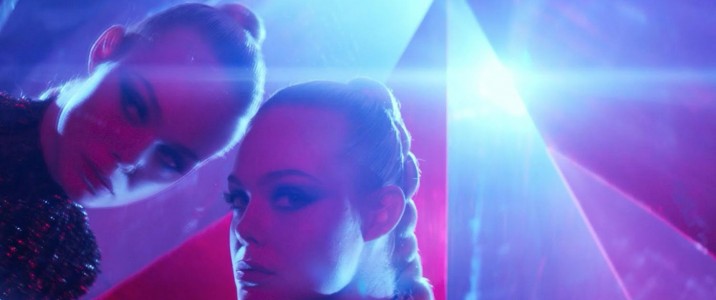Provocation does not necessarily make one a successful provocateur. It’s exceptionally easy to shock your audience with taboo subject matter and grotesque imagery, yet it’s another thing entirely to put those practices to use for the purpose of upending a fixture of the status quo, whether that be political, social, or, yes, that of the cinema. There is a long, storied history of filmmakers who have generated controversy for their work, either intentionally or otherwise, and Nicolas Winding Refn, the stylish Danish director responsible for Drive, yearns to hold company with some of the finest in this subset. Which is to say that his latest work, The Neon Demon, is frustratingly disappointing in how it strives to reach the heights classic dark satire in its surreal, stark mise-en-scene, yet lacks the conviction of Refn’s forebears to make a truly lasting impression other than that of a superficially juvenile nature.
Superficiality, ironically enough, is a ripe theme for Refn’s horror melodrama concerning the rise and fall of an aspiring model named Jesse (Elle Fanning). A small-town Georgia girl barely sixteen who can pass for nineteen, she finds herself suddenly thrust into the maw of fame under the capricious gaze of her peers, including Ruby (Jena Malone), the makeup artist whose affections for the ingenue are painfully transparent, and two veteran models whose jealousy is equally apparent. One of the models, Gigi (Bella Heatchcote), gushes over the extensive plastic surgery she’s undergone from her adored “Dr. Andrew”, she brashly beams how he “called me the Bionic Woman.” Jesse replies by asking if that’s a compliment, less from a malicious motivation and more so from sheer ignorance of a bygone pop cultural artifact. It provides one of the biggest laughs the film has, which is brimming with pitch-black comedy throughout, initially to its benefit but eventually to its detriment.
These antagonists pose an opposition to Jesse initially from a professional standpoint rather than one borne from violent retaliation. All of them are measured in terms of their marketability and physical allure per the dictates of a patriarchal evaluation, including a renowned fashion designer who can barely suppress his orgasmic euphoria when he first lays eyes on Jesse and the quietly menacing photography who speaks softly and carries an unnerving semblance of command and control over his models. When the latter instructs Jesse to step onto her first major photo shoot, the girl’s transference from the familiar setting behind the camera to the blindingly white, abstract set is indeed a powerful image and one of the most economic conveyances of the emotional state Refn strives for in regards to placing us within the head space of his protagonist. Other male characters range from grossly comical, like her sleazy landlord (Keanu Reeves), to earnestly ineffectual like Jesse’s peer and potential romantic interest (Karl Glusman) whose string of advice falls on deaf ears. If Refn’s critique of the ramifications of the male gaze, and the subsequent difficulties in remedying the internalized attitudes symptomatic of a patriarchal hegemony, isn’t necessarily novel, it is nevertheless an important one.
Alas, that aforementioned gaze is indulged upon by Refn himself the farther along he goes. It isn’t that he incorporates an exploitative, Grindhouse-esque aesthetic where one isn’t needed (for goodness sake, the film’s opening shot is Fanning draped across a couch, drizzled in fake blood for a photo shoot. If that doesn’t give you a hint to what you’re in store for, nothing will). What is disappointing and quite infuriating is that for his remarkable eye for primary color palettes and adroitly composed images, Refn has ultimately created a hollow mummery that belies any profound point he wants to make. He seems to be enraptured by such sophomoric pretension, most notably with the not-so-subtle motif of a glowing triangle as well as the progressively demented nature of his tale until the final punchline that is more facile than substantially shocking. There are those who will be repulsed by the moments of necrophilia, sexual assault, and cannibalism, but then again there are plenty of people who have never watched a film by Dario Argento or Alejandro Jodorowsky. Refn’s inspiration from these figures is commendable, yet he sadly cannot digest the lessons imparted by them to create a resounding statement. It’s only appropriate, then, for a filmmaker who doesn’t know what he wants to say to end his film with an image of literal regurgitation.
